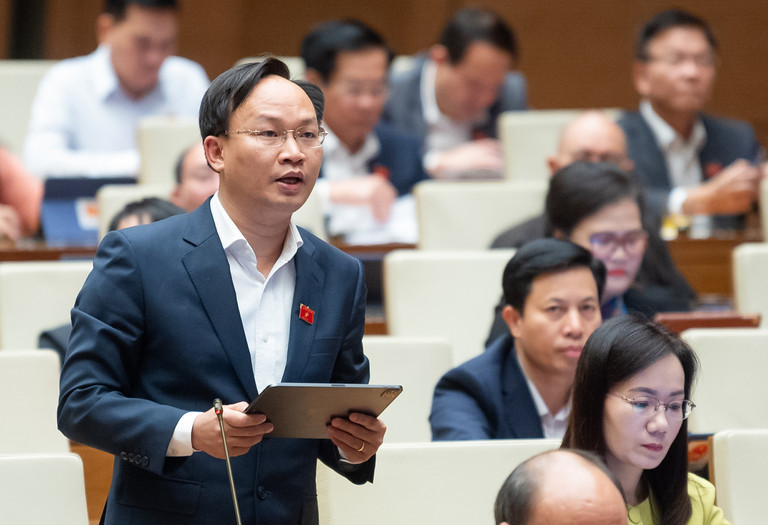
“A woman stepping out of a bank with tears on her face has inspired me to talk once again about bancassurance,” said Pham Van Thinh, a National Assembly deputy from Bac Giang at the National Assembly session.
Thinh began his speech with a story about a woman who had to mortgage her red book to borrow VND300 million from a bank to pay her debts. Not only did she have to mortgage her land for the loan, she also had to take out an insurance policy worth VND20 million in order for the bank to provide her a loan. This meant that the woman could get only VND280 million to pay her debts.
Thinh said the maximum discount rate for life insurance agents applied to the two most popular insurance products - term life insurance and endowment insurance -- is 40 percent of insurance premiums for the first year.
Many banks which join forces with insurers to sell life insurance have been found forcing borrowers to take out insurance policies with insurance premiums equal to 2-4 percent of the value of loans. Banks and bank officers are requested to gain certain numbers of insurance policies and insurance premiums.
Thinh cited a report last year by the Ministry of Finance which inspected four life insurance companies distributing policies via banks. Seventy percent of clients cancelled insurance policies within the first year, losing the premiums they paid before.
The value of the canceled insurance policies that an insurer distributed via a commercial bank within the first year was VND2 trillion.
In many cases, as borrowers have to pay premiums as well as satisfy other requirements set by banks, the real interest rate can increase by 50-100 percent in the first two years, much higher than interest rates in credit contracts.
Statistics show that banks earn big money from bancassurance. Vietcombank, for example, had pre-tax profit of VND23.05 trillion in 2020, while prepaid fees for exclusive cooperation contracts to sell life insurance policies amounted to VND9.2 trillion. The figures were VND9.596 trillion and VND8.4 trillion, respectively, for ACB.
“As such, in 2018-2022, the banks’ income from bancassurance accounted for a large proportion of their total profits,” Thinh concluded.
He went on to warn that if the amended law on credit institutions only stipulates that commercial banks can act as insurance agents, there will be nothing to guarantee that banks won’t force borrowers to take out insurance policies, or exploit depositors’ lack of information.
According to Thinh, the cross-sale of life insurance policies via banks will prompt commercial banks and life insurers to ignore regulations and professional ethics to seek the highest possible profits.
Therefore, if other National Assembly deputies disagree with the proposal on prohibiting to sell insurance policies via banks, new regulations need to be included in the law on credit institutions to protect customers.
A new provision should be included in the law is that the government will promulgate legal documents regulating the business of insurance products with commercial banks acting as agents.
The regulation, if included in the law, would help polish the image of commercial banks and life insurers.
Pham Van Hoa from Dong hap defended the view that commercial banks must not be allowed to sell insurance policies because problems with bancassurance.
Hoa, representing voters in the Mekong Delta, raised queries about insurance policy sales. Under current regulations, insurance companies must have head offices, but many companies don’t have them.
There are only two insurance head offices in the 13 provinces of Mekong Delta. As a result, clients taking insurance policies in Dong Thap have to come to Long Xuyen and Can Tho to lodge complaints and petitions.
Duong Khac Mai, a National Assembly deputy from Dak Nong, suggested that to protect customers, it is necessary to have policies to prevent and sanction bank officers’ violations.
For example, bank officers who give unclear consultancy leading to misunderstandings about products and officers who force borrowers to take insurance policies must be punished.
Thu Hang